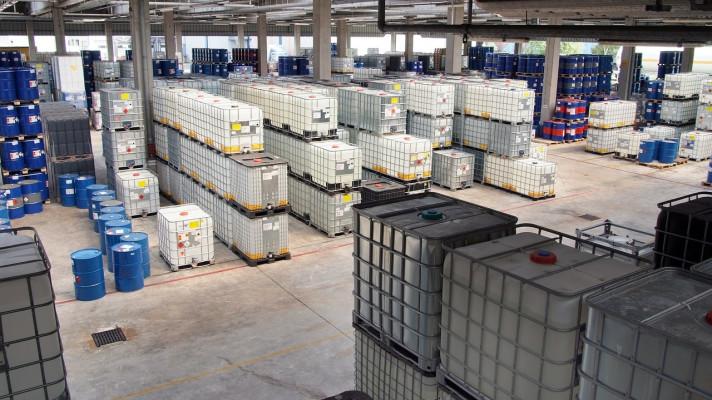Finland participates in cleaning of old pesticide stores in Russia
Finland is the coordinator country in a joint Arctic Council project that aims at preventing old pesticides from escaping into the Arctic environment and particularly into the Arctic Ocean. The Arctic countries started in 2001 a joint project for treatment of storages of obsolete pesticides in Russia. The first step is to localize such storages and examine their contents. If needed, the substances are repacked and stored safely. The final phase is the elimination of some 100 tons of pesticides in an environmentally acceptable manner.
The area that must be surveyed is huge, no less than 10 millions of square kilometres, from the Finnish border to the Kamchatka Peninsula and in Southern Siberia to the borders of China and Kazakhstan. The main target area is the basin of the Arctic Ocean, i.e. Northern Russia and the headwaters of the large rivers of Siberia. Of the 88 administrative regions of Russia, 12 are involved in the project. Large quantities of pollutants are transported by the rivers into the Arctic Ocean.
More than 2100 tons of old pesticides have been examined during the years 2004-2006. In many cases it has been difficult to identify the substances and some 260 tons of them have been studied by chemical analysis. When a storage has been found and examined, it is made sure that the substances will not escape into the environment. If properly packed and stored, the pesticides are no longer an immediate risk to the environment and human health.
Pesticide storages are in most cases found at former collective farms. Some of the kolchozes have gone bankrupt while others continue as agricultural enterprises. The farms that are still used have usually at least kept the pesticides under supervision. However, many of the kolchozes have been abandoned and nobody has been responsible for their storages.
The international steering group of the project negotiates directly with the local governments of the regions about practical arrangements. Surveying and repacking the pesticides is usually carried out by the regional plant protection and health care authorities. The practical work is faced with huge challenges: the distances in northern Russia are enormous, the sites are not always accessible by roads, and the summers are short.
The project is funded by the Arctic Council countries and by the regions of Russia that use their own budget funds. In the best cases the regional funding has been several times more than the international funding. At present the regions, when they apply for international funding, will commit themselves to store the pesticides within their own territories until they can be destroyed using internationally acknowledged and environmentally acceptable methods.
The risk of obsolete pesticides to the environment and human health will not be eliminated before the substances have been destroyed. So far Russia has not approved any treatment technology. There have been some proposals, such as constructing high-temperature incineration plants for this purpose. While the final solution has not been within sight, some regions have on their own initiative stored the pesticides in long-term storages where they are kept in concrete arches. Probably it will be impossible in the future to get them safely destroyed as there is no owner who could pay for it. The funds reserved for destroying the substances have now been used for storage, and pesticides have been placed among other dangerous substances.
It is estimated that there are some 300 000 tons of outdated pesticides on the earth. If not properly stored, they are a threat to human health and to the environment.
The Arctic Council is a regional forum for sustainable development. Within the council, member countries and indigenous peoples can cooperate in environmental as well as social and economic questions. Member countries in the council are all countries that have some territory north of the polar circle (the Nordic countries, USA, Canada, Russia). A number of European countries participate as observers.
More information
Mr Timo Seppälä, chief inspector, Finnish Environment Institute (SYKE), phone 0400 148 643, surname.lastname@ymparisto.fi
Ms Ulla Sonck, information officer, SYKE, phone 040 740 2186, surname.lastname@ymparisto.fi
